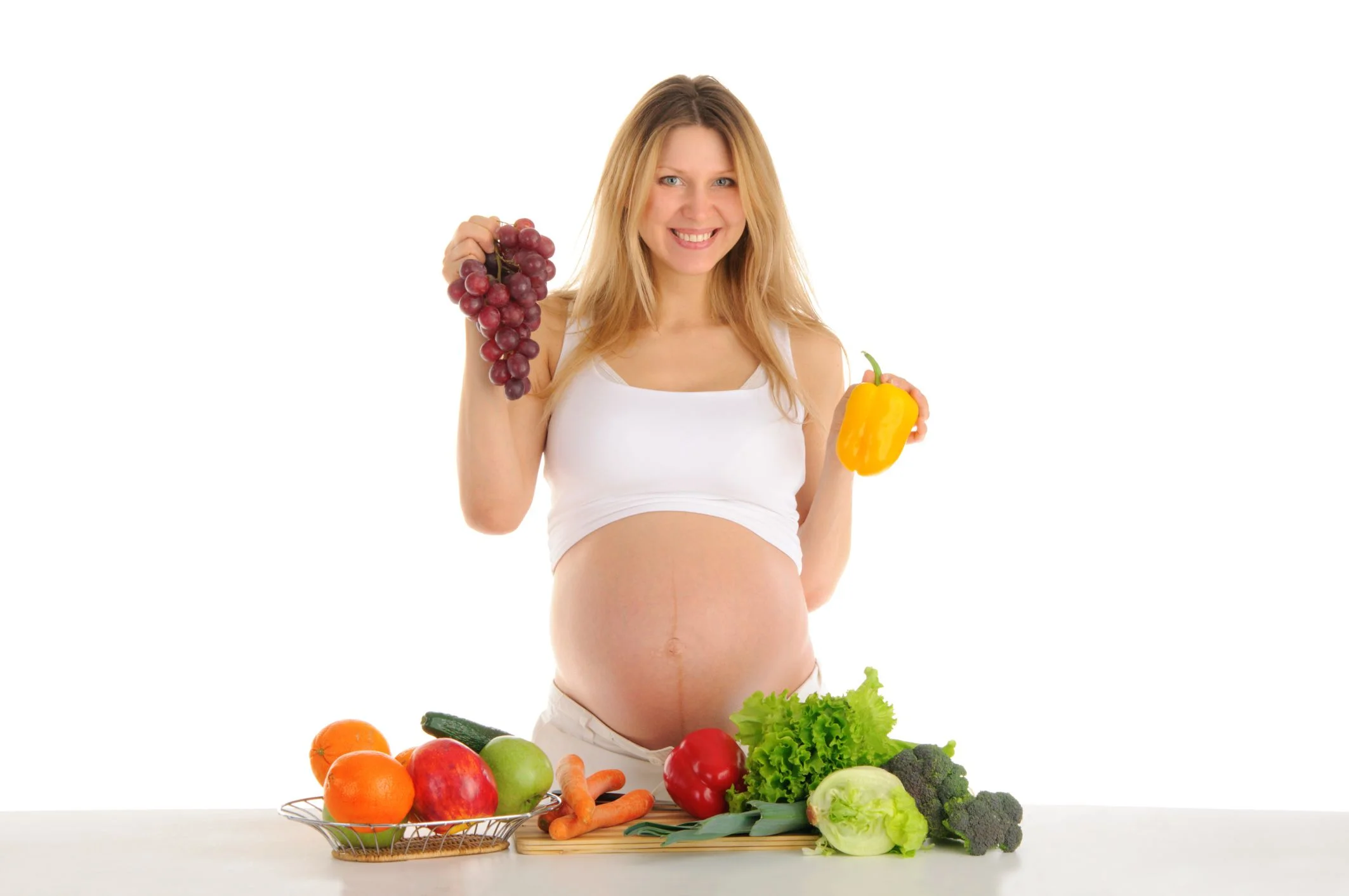Does Diet Affect Your Fertility?
Does what I eat really make a difference with getting pregnant?
This is a question I am asked often as a fertility expert. My answer is always a resounding YES! And in fact, you can basically ask that question about anything health related - does diet affect my hormones? My mood? My skin? And the answer would be yes, yes, and yes! Because of that, nutrition is the first place I usually start with women who are trying to get pregnant. Because, as the saying goes, food can either be your medicine or your poison.
What is the Best Fertility Diet?
If you are trying to conceive, you may be a bit confused as to just what is the best fertility diet. Is it high fat low carb, paleo, vegan, or even pegan? (Yes, this is an actual new term! Pegan was coined by Dr. Mark Hyman, and is a diet combo of paleo + vegan.)
Well, the answer to this question is both much more simple and much more complex than any one of those very specific diets.
While each person may have a different micronutrient (micronutrients are the nutrients the body needs in smaller amounts, vitamins and minerals like omega-3’s, B vitamins, magnesium, etc.) need based on their unique body and health, there are some general guidelines that can apply to most every woman trying to conceive. This article will address these general guidelines for conception, and I recommend seeing a functional medicine practitioner or nutritionist who specializes in fertility for help with your own specific micronutrient needs.
Recent Research
Let’s look at some of the recent research has to say.
In 2012, a preliminary study by Harvard School of Public Health was released which researched the effects that different types of fat had on women in their 30’s about to undergo IVF. What they found was that women who ate a diet with the more monounsaturated fats were 3.4 times more likely to conceive and have a child with IVF. Foods high in monounsaturated fats are things like avocados, olive oil, nuts, and seeds. On the flip side, this study also found that women who ate more saturated fats (like those found in butter and red meat) produced fewer high-quality eggs. More research still needs to be done, but I think the take-away from this study is that it solidifies the current thought that fat is not bad to have in our diet. However, for fertility (and I would argue also for many different health conditions), it is the type of fat we need to pay attention to. While monounsaturated fat can be a healthy addition to our diets, saturated fats may be something to limit.
Another study in 2007, which took data from the Nurse’s Healthy Study, looked at what diet and lifestyle factors could be found to predict ovulatory disorder infertility. Ovulatory disorders are thought to be a cause of 18-30% of infertility cases. What the study found was that when women were following one or more of the following health habits, their risk of ovulatory infertility was reduced. In other words, they found that when following a healthier diet and lifestyle with the below recommendations, hormones were able to balance and fertility was increased.
Here are the 10 main factors the researchers found to have a positive impact on fertility:
Avoid trans fats. These are the fats found in fast food establishments (like deep-fried foods) and many processed foods like cookies, cakes, biscuits, and other prepared foods.
Use of more vegetable oils like olive oil.
More plant-based proteins like beans, nuts, and less animal protein.
More whole grains which are slow metabolizing carbohydrates and less refined carbohydrates like white rice and pasta, which can quickly spike blood sugar.
More whole fat dairy and less or no non-fat or low-fat dairy. (My comments on this are that in general I think dairy can be pro-inflammatory for many people. However, products made with low-fat or non-fat ingredients tend to be ultra-processed and sugar laden and pose more harm. My recommendation is to still limit or avoid dairy when trying to conceive - and when you do eat it, eat the full fat least processed version.)
Take a multivitamin with folic acid and B vitamins. (My comment here is to make sure your multi or prenatal does not contain the synthetic form of folic acid, but the natural folate form. Additionally, to have the active forms of B’s contained in your multi, also called a methylated form.
Get iron from plant-based sources as opposed to red meat. Plant-based sources can be found in beans, fruits, and vegetables. Too much iron in the body can cause inflammation and free radical damage. The body tends to tightly regulate the plant-based sources of iron (non-heme), and any excess is passed out of the body in the stool. However, it doesn’t tend to regulate animal based iron (heme) in the same way and can just continue to be stockpiled in your iron reserves, possibly leading to an excess.
Water is beneficial to drink. Coffee, tea, and alcohol are okay in moderation. Sugary sodas should not be consumed. (My comments: there is some convincing research that caffeine and alcohol should mostly be avoided when trying to conceive. See my blog here on coffee and fertility. Also, for more information on how sugar can adversely affect your hormones and fertility, see here
Aim for a healthy weight. (My comments: aim for a body mass index level (BMI) between 20 and 25 to optimize chances of conceiving.)
Begin a daily exercise plan if you do not already have one. But do not overexercise, especially if you are very lean, as it can work against conceiving.
The researchers for this study stated that “as women started following more of these recommendations, their risk of infertility dropped substantially for every one of the dietary and lifestyle strategies undertaken. In fact, we found a sixfold difference in ovulatory infertility risk between women following five or more low-risk dietary and lifestyle habits and those following none.” and that “. . . women in the [Nurses’ Health Study] who followed three or four of the recommendations suggested in The fertility diet were 66% less likely to have problems conceiving than women who didn’t.”
To Sum it Up
To circle back to the question of just what is the best fertility diet? The simple answer can be cited in this quote by michael pollan “Eat food. Not too much. Mostly plants.”
The more complex answer to that question is that it’s not about any one strict diet to follow for fertility. It’s about eating more foods in their whole form, eating more plants, and eating less meat and processed foods. A new 2019 study published in the Journal of the American Medical Association (JAMA) found that just a 10% increase in processed food (foods which are ready to eat or heat, many times containing additives or artificial sweeteners) consumption was significantly associated with a 14% higher risk of all-cause mortality (meaning just a 10% increase(!) in eating processed food was associated with increase in deaths due to many different diseases). While this study is not specifically related to fertility, we can imagine what the effects of a processed food diet could have on our fertility as well. From much of the research that is coming out such as this one, it is really apparent that the more whole foods and plant-centric diet you can eat, the healthier it will be for your body and fertility. So, in essence, you could follow a vegan, paleo, or even pegan diet and still be within these parameters for following a fertility friendly diet.
Are you a woman trying to get pregnant and looking for more personalized guidance and support into natural ways to increase your fertility? Book a FREE Fertility Audit call with a member of our team here.
References:
https://jamanetwork.com/journals/jamainternalmedicine/article-abstract/2723626
Changes to Diet and Lifestyle May Help Prevent Infertility from Ovulatory Disorders. (October 31, 2007). Harvard School of Public Health Press Release. Retrieved from http://www.hsph.harvard.edu/news/press-releases/2007-releases/press10312007.html

